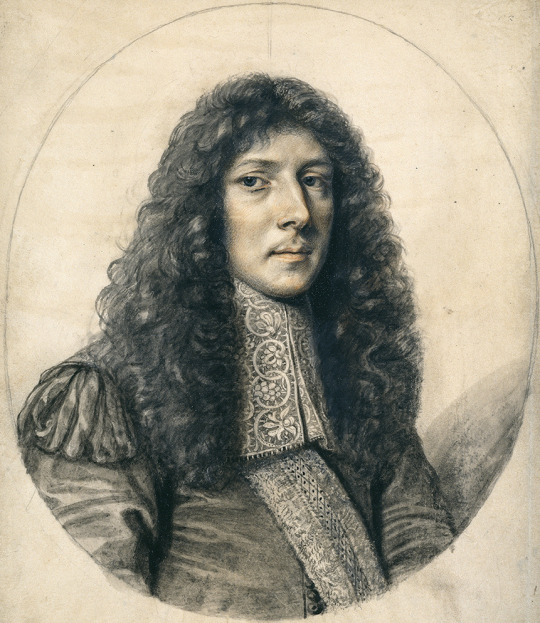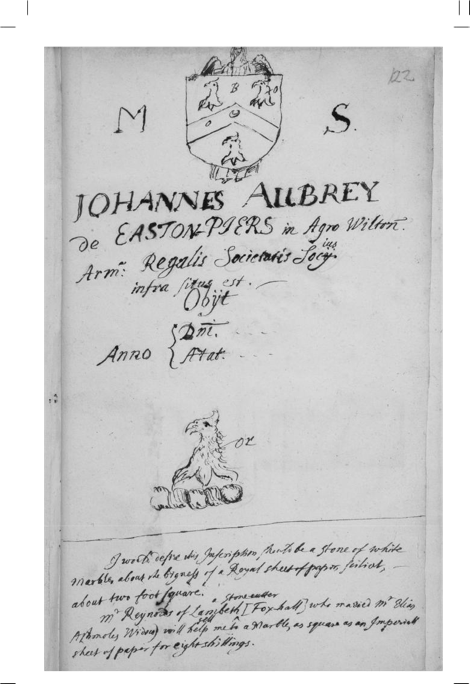
John Aubrey (1626-1691)
John Aubrey on Gout, Epigraphs, the Monumenta Britannica, Apoplectic Fits, and More
Edited by Ruth Scurr
Anno 1693
20 March
I was attacked and wounded by thieves. They set upon me around 11 p.m., robbed me and left me with fifteen wounds to my head. I have been ill since and had to stay a whole week in my chamber trying to recover. I am weary from taking medicine.
…
April
A severe bout of gout has nearly carried me away. It struck just after I recovered from the wounds inflicted by the thieves. I had intended to visit my cousin Elizabeth Freeman (the daughter of Sir John Aubrey who married Ralph Freeman of Aspeden Hall) and my friend Dr William Holder in Hertfordshire, but ill health prevents me.
Mr Dryden will try to help me get my Monumenta Britannica published by his bookseller, who normally only prints plays and romances. I am exceedingly obliged to him, but I think I will have to print it by collecting subscriptions instead. I have begun gathering them already and been lucky so far. And I have sent a copy of my prospectus for publishing my book to Mr Wood. I hope he can find me some more subscribers.
I intend to be in Cambridge towards the end of next week, where I shall be glad to serve Mr Wood. People are shy of speaking to me about his book; the Peers (I can tell) are offended by his liberties. Mr Evelyn is very cross because he asked Mr Wood to send him what he intended to write about him in his book before it was published, but Mr Wood did not do so. Now Mr Evelyn complains that Mr Wood has called him a virtuoso: he hates the title so much he says he would rather have been called a coxcomb.
Frances Sheldon and her niece were at dinner and they were angry with Mr Wood for disparaging their gentility. I told them that it was only drollery, not disrespect.
…
May
I have now been indoors for three weeks with this bad attack of the gout.
…

I have designed my own epitaph:
JOHANNES AUBREY
de EASTON PIERS in Agro Wilton
Arm: Regalis Societatis Socius
Infra situs est
Obÿt
Anno …
…
I desire this inscription to be a stone of white marble about the bigness of a royal sheet of paper, i.e. two foot square. Mr Reynolds of Lambeth (Foxhall), a stone-cutter who married Mr Elias Ashmole’s widow, will sell me a marble as square as an imperial sheet of paper for eight shillings.
…
Mr Thomas Tanner urges me, before I pass away, to lose no...
You have reached your article limit
Sign up for a digital subscription and continue reading all new issues, plus our entire archives, for just $1.50/month.
Already a subscriber? Sign in




